Conception, maternity and birth
Life Journey- starting the journey is all about providing help, experience, guidance and support to people, parents, children who are going through this stage. Life Journey- early years starts even before conception because there is so much to consider.
Here are some facts and stats about conception and birth. GO!
This section explains what are the 4 building blocks for the life to be. GO!
What is the new child liekly to inherit? GO!
See what traits can be passed down to your child. GO!
This section describes what happens to the foetus in the womb. GO!
The mother has a huge influence on the baby’s development during preganancy. GO!
This is the old argument – nature or nurture – see what impact social environment has as opposed to genetics GO!
This section explores the financial aspects of starting a family. GO!
The climax of the whole thing (sic) is giving birth. See what that’s like. GO!
After all that, what can you expect in the first few days after birth? GO!
We have a testimonial GO!
What next? GO!
Some stuff you might like? GO!
Facts About conception, maternity and birth
712,680 births in UK in 2019 – a reducing trend from 812,000 in 2012.
male to female birth ratio is now the highest ever at 107/100. Never has female rate exceeded male
£11.20 is the average pocket money per week for children; for those aged 5 to 10 years it’s £6.40 and £16.30 for those aged 11 to 16 years.
In 2019 only 1 in10 babies are christened in the UK
2019/20, 10.4 percent of pregnant women in England smoked at the time of delivery. 14.6% in scotland
70% said more children aged three to seven – the foundation stage and key stage 1 – were now starting school without being toilet trained than five years ago. This number increased to 100% among staff working with children aged three to five
77% of parents read to their child 0-5 every week but only 30% read daily
90% of parents did chores but only 60% of their children do chores
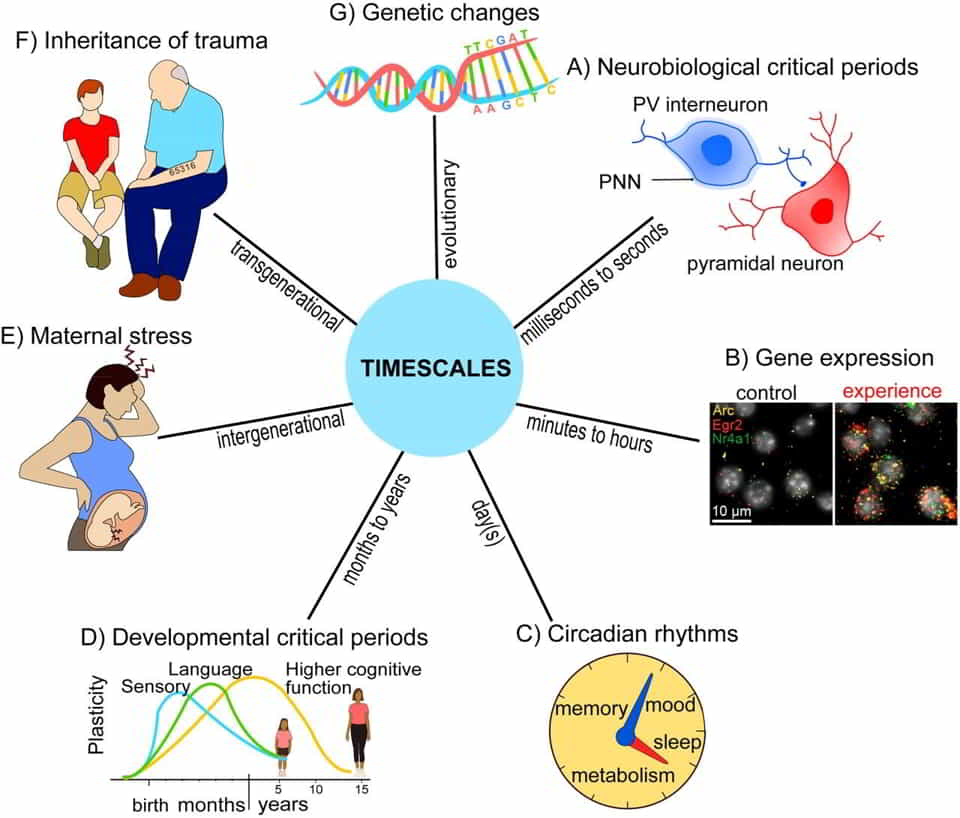
It all starts this way for conception - the 4 building blocks
There are many key stages of life, but the creation of life and the early years are the building blocks for the future adult-to-be.
Scientists today have agreed that there are four main areas that go towards the development of an adult - namely :
- DNA
- Foetal Development
- Maternal Environment
- Social Environment.
Before we get into the journey let’s talk about the preparation, planning and scene-setting for the journey.
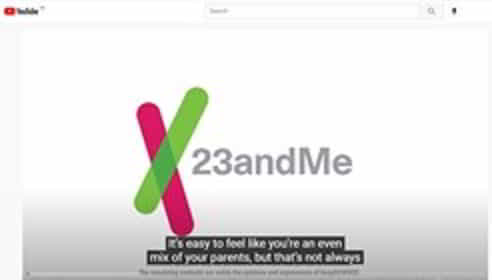
DNA – It’s all in the DNA - or is it?
When first thinking about starting a family it’s important to take a look at the DNA – in other words look at the family history on both sides and see what the position regarding physical and mental health is.
It’s not always guaranteed that a child will inherit certain tendencies from their parents, or grand- or even great-grandparents – but they could. So, taking DNA – if there has been a lot of (say) cancer, heart disease, motor neurone or mental health issues then parents should seek professional advice first and even more importantly understand the consequences and impact creating life might have if a child is born with a major issue. This video from 23andme which you can see by clicking the image explains what you might inherit from your parents and why.
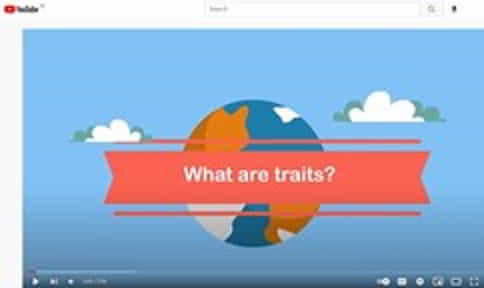
Genetics and inherited traits
Looking at the good side of DNA parents can also see traits and tendencies that are likely to be passed on such as a family full of nurses tends to suggest that a caring disposition may appear in the new born. Likewise, if there is a strong musical tendency again this may make an appearance in the newborn, or it may pass it by for the next generation. See the MooMooMath and Science video on genetics and inherited traits here by clicking on the image.
Traits to look for
Parents should be looking with great enthusiasm for these tendencies; they may not appear straight away or even may not appear until they become adults but things will surface – both good and bad – so parents should be on the lookout and in many situations be willing to support and manage that tendency or characteristic. This article from Kids Health from Nemours explains how our DNA affects who we are for parents.

Foetal development
The second building block is Foetal Development. This 40 week journey is full of knowledge gaining. We know from 20 plus weeks that the foetus can see light and hear and take on board sounds. For example, playing classical music gently can have an impact on the foetus, but at that time the foetus cannot interpret what it is – it just sounds soothing. When the new born baby arrives and grows up, sounds that were played in the womb often bring back warm memories and comfort. But likewise, the reverse can happen if the mother is a smoker, 10.4% of pregnant mothers smoke. The foetus is deprived of oxygen and could be underweight or more at risk. See the ScienceDaily article on exposure to nicotine during pregnancy by clicking the picture.
If the mother is a drug user or heavy drinker this will have a massive impact on the foetus. Whilst the foetus has built-in filters that protect it against the mother, the chemicals in the mother’s blood stream can get through. Smog and heavy polluted areas of an inner city gets into the blood stream of a mother and can also affect the foetus – see the World Health Organisation report. So planning the 9 month journey is really important
A Natureresearch article shows how genetic and environmental issues can affect a foetus during pregnancy.
Finally an interesting point is whether traits, knowledge or behaviours can be passed on through ‘genetic memory’ – see BBC article here.
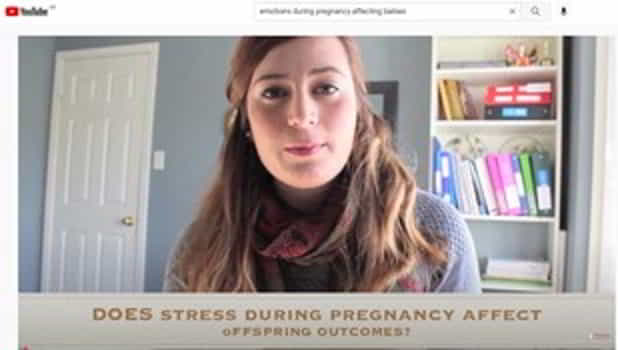
Maternal environment
The third building block is Maternal Environment. We have already seen how smoking, drinking and drug use can directly affect and impact the foetus and Parents should think about this before contemplating starting a family. Maternal Environment is the condition in which the mother lives during the 40-week period. Stress hormones at work or very loud work environment can all impact on the mother. For example, where couples are rowing or arguing, or where aggressive noises can be heard and sensed via the mother (but not interpreted by the foetus at that stage). The foetus is gathering information but unable to decipher it, but in later life sounds, emotions and feelings can be reconnected to make the adult feel uncomfortable. The individual still might not be able to understand fully, but they will feel strange when the same scenario is played out. So, if the mother is subjected to aggressive behaviour or is aggressive the foetus not only senses the emotion, but chemicals are often produced by the mother’s body and the foetus will be subjected to them.
Clicking the picture will play a Canadian video which explains about the impact of stress during prenancy.
Family environment
Very well family have an article on Environmental Influences on Prenatal Development .
An example of this might be the mother being involved or injured in a road accident; imagine the sounds, the impact, the screams, stress and fear, then potentially the pain and the chemicals such as cortisol, hormones, endorphins, corticotrophin coming into the blood stream. The foetus will sense the trauma and may receive some of the chemicals passed on by the mother. The foetus records the information but is unable to interpret the data at this stage.
Taking extra care during this critical period is vital for mothers.
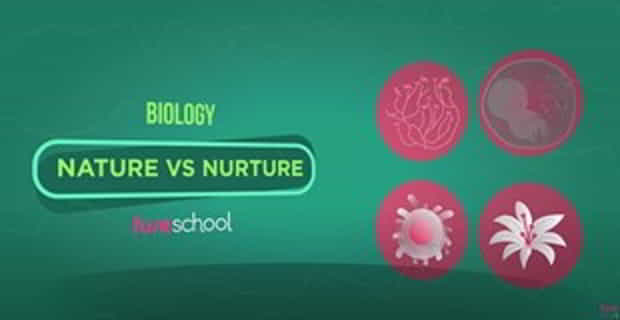
Social environment - nature or nurture
The final building block, Social Environment. Scientists and professionals have long argued whether nature or nurture has the biggest impact. Well, it can be either or both – see the articles by very well mind or by Simply Psychology below. It all depends on the stronger of the two and the impact. If we look at the animal kingdom (to which humans belong) let’s take for example a cat. In most instances cats have strong DNA and hard wiring to kill or play kill smaller animals and birds and they cannot help it. It’s in their nature.
But it has been tested and kittens have been reared with small animals and they did not attempt to kill or play kill their sibling. Humans are the same. Often today bad DNA tendencies are watched closely in a new born and programmes developed to ensure the tendencies are monitored or counterbalanced.
There’s an article from verywell minds on the age old debate of nature vs nurture and another from Simply Psychology which takes a more technical view.
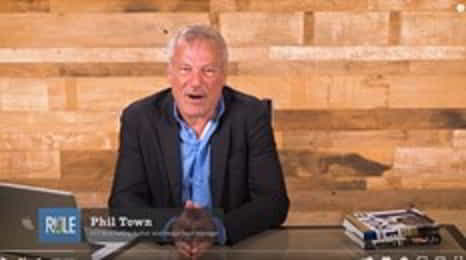
Starting a family - finance
This video is US based - it discusses the finances to be considered when starting a family.
Starting a family is not often easy and things often don’t turn out as planned. Everyone has the right to have a family, but we have a growing population and it’s not cheap bringing up children. It’s a balance between having a family and thinking about the wider issues of population growth – and feeding that growth.
When considering starting or extending a family it requires 2 views – a short term view and a long term view. It’s not just about having a baby or adopting a baby. It’s not just about love and passion (which are often drivers to family making). It’s about dedicating yourself to looking after something for at least 25 years and having the financial back up and stability to ensure your child has the best possible upbringing. The risks are pretty obvious. If you have no money and you’re raising a family it’s stressful, tiring and demoralising, and you’ll be unable to raise your child the way you would have wanted to. Phil Town covers some basic financial implications for starting a family.
When considering starting a family it’s also important to think about health. Many couples casually talk about getting married and having a family with no review of historical hereditary health issues they may be passing on. If a couple have parents and grandparents who have genetic health issues such as cancers and premature deaths due to heart matters etc. then it’s vitally important to talk to health professionals about the potential risk and consequences, and what to do. WebMD has an article on whether you should look at genetic screening before conception.

Pregnancy
Things to consider when you're pregnant
When pregnant it’s important to consider the parents’ health, their lifestyle, environment and financial situation. Stress due to hereditary matters or financial uncertainty can make pregnancy very difficult. Ensuring the mum has a stress- and trauma-free environment with a good balanced lifestyle along with as healthy a diet as possible can only make for a good pregnancy and happy baby.
If the individual or family environment exposes the foetus to chemicals, or drugs or excessive drinking this can cause the foetus to suffer or lack in various areas.
BabyCentre show 10 steps to a healthy pregnancy
WebMD explain the impact of stress during pregnancy
LiveStrong.com explain the impact of fighting and stress during pregnancy
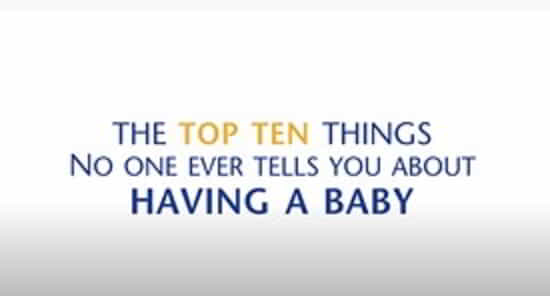
Giving birth
There are many things to consider when giving birth. Raising a child can be extremely demanding especially in the first two years, and parents need to stay in good mental and physical health to ensure their new baby gets the best start.
This video (click the picture) shows you the top ten things you need to know about giving birth. It's a fact-based realistic US list from a nurse.
The NHS have a section the stages of labour and birth.
FamilyLives have advice on pregnancy and babies
BabyCentre have an article explaining why there may be problems between you and your partner during pregnancy

First few days
Things you'll do in the first few days
The first few days with your new baby are exciting (and tiring!). Your baby will sleep for about four hours, feed, and then sleep more. You need to keep them clean and dry, and wash them every day or so.
Some misconceptions: you imagine a robust bouncing baby, but they might be tiny and wet. You imagine a little adult, but the baby is likely to be scrunched up as its arms and legs have been bent, and it will have a huge head which may start out pointy!
Some babies' skin is red, pink or purple. Some babies have a white coating (called vernix caseosa), which will wash off in the bath. Some are slightly furry - it's nothing horrible or wolfish and will wear off quite quickly. It may have spots or rashes, but again any blotches will wear off quickly.
Having said all that, you must speak to the midwife if you’re worried about anything with your new baby – they will be able to reassure you. In the first 24 hours a health professional will offer your baby an injection – this is vitamin K which can help prevent a rare but serious blood disorder.
You will also be offered a newborn physical examination for your baby in the first 72 hours.
They will also have a blood spot test and hearing screening in the first few weeks.
There’s a good article by parents.com which tells the story of someone’s first week.
For visitors
Why don't you join us?
You can register to join us as a member, when you’ll be able to download our stuff and comment, or as a YouDriver when you’ll also be able to check your health and set up your own action plans to make some improvements. If you’ve already registered, sign in below. Or let us know what you think.

Next Steps
It doesn’t matter what stage you’re at – it’s important to be the best you can be. At the end of the day it’s about taking personal responsibility – You Drive!
It’s really your choice. You can find out more information about the subject, or see other institutions that can help by going to Support. There you will find organisations, training, coaching, self-help courses and other items to support your personal change. We have also started developing a panel of experts to provide info, advice, help and support.
Get Support
There are times when you need some help to meet your aims – a helping hand. That might be an organisation that can provide you with some help, some specialised information, a particular book or tool to help, or just getting some background reading material.
We have a lot of items which appear on our Drives and other pages, which you can go to by clicking on the picture or link. Some contain affiliate links and we may receive a tiny commission for purchases made through these links.
If you know of anything which could help you or our other visitors then please click the button on the right, which will take you to a Contacts page where you contact us.
Experts
We are compiling a list of experts who can provide advice, help or specialised services. You will be able to access these experts from anywhere on our site you see our ‘Experts’ symbol. Click the green E to see what our Experts list will look like, with a couple of imaginary ‘experts’ added!
More Information
Scroll down to see more information on this Drive.
If you register you can also download reports, white papers, quizzes and other collaterals. We will never ask you for any financial information, and we’ll only send you the information you want. You can register for our site either above or in the footer below. You can provide your own questions and experiences in order to help other members. We only moderate for spam and inflammatory language – see our moderation policy.
If you’ve found this interesting, then please share it on social media. Choose your network!
Your DNA Guide
DNA Guide -the Book, a unique new approach to learning genetic genealogy. Instead of learning more-than-you-need-to-know in textbook style, you’ll choose a specific DNA question and start exploring it right away. Follow concrete step-by-step plans, learning important DNA concepts–in plain English—as you go.
Blueprint: How DNA Makes Us Who We Are:
In Blueprint, Robert Plomin, a pioneer in the field of behavioural genetics, draws on a lifetime’s worth of research to make the case that DNA is the most important factor shaping who we are. Our families, schools and the environment around us are important, but they are not as influential as our genes.
The Mind of Your Newborn Baby
This is the 10th anniversary edition of the classic Babies Remember Birth. This book has the potential to revolutionize the way we look at babies, both before and after birth
The Making of a Ginger Nut
– Nature or Nurture
In his book ‘The Making of a Ginger Nut’, Malcolm Day attempts to answer the question by recalling memories of his relatively poor, but happy childhood, living in Shirley, on the edge of affluent Solihull. He explores how his father, grandfather and uncle have all influenced his life.
The Modern Midwife’s Guide to Pregnancy, Birth and Beyond
‘Marie Louise is a dream come true for any parent with her uncanny ability to simplify the most important and complicated questions’
Emma Bunton, co-founder of Kit and Kin
The Pregnancy Guide For Men
The ultimate first-time dad’s handbook on what to expect having a baby and becoming a new father
In The Pregnancy Guide For Men, you’ll discover:
How to navigate everything that is expected of you — without feeling overwhelmed and like you’re losing it. The biggest challenges you’re going to face during pregnancy — and simple (but effective) ways to overcome them
Your Baby, Your Birth
Hypnobirthing Skills For Every Birth
In-demand hypnobirthing coach Hollie de Cruz provides you with the skills and tools to make any birth feel safe, calm, connected and empowering.
Pack of 2 Pregnancy Tests
Early Response Home Testing Kit, Early Family Planning, Quick Result & Easy Detection | Over 99% Accuracy – Discreet Packaging
Pack of 2 Midstream Pregnancy Tests – They come in a sealed case and each test is individually airtight foil-wrapped to make sure no tampering has been done.










